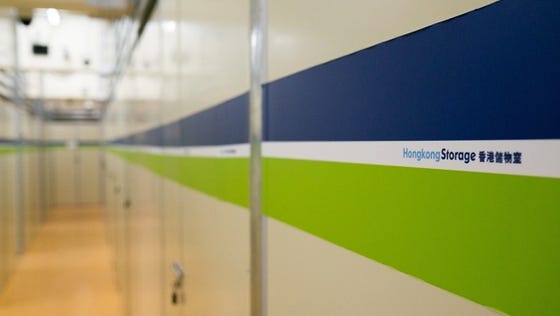The realities of a very limited housing market combined with other physical and environmental factors have created a need for self-storage in Hong Kong. The question is whether self-storage operators can afford to meet the demand.
May 17, 2015

By Bobby Chung
Hong Kong is recognized as one of the most densely populated cities in the world. Here are some interesting facts about local living conditions:
Based on a survey of 360 cities by U.S.-based consultancy firm Demographia, Hong Kong has been named the world’s “most unaffordable” housing market for four straight years, as reported in January by the “South China Morning Post.”
The living space per capita is about 13 square meters per person, according to the Hong Kong Housing Authority, which posts housing figures on its website.
In 2013, the Hong Kong Government reported in a press release that more than half of the private dwellings had a saleable area of less than 50 square meters.
All of these facts, combined with other physical and environmental factors, have formed the basic need for self-storage in the country. Hong Kong provides a very unique habitat for the industry, but can operators afford to meet the demand?
Physical Operating Environment
Due to limited land supply and high land costs, the average rentable area of a Hong Kong self-storage facility is much lower than that of facilities in Western countries. Most storage businesses operate from inside a suite or floor of a multi-story building, whereas in other countries, they’re usually built from the ground up.
When opening a new facility, it’s extremely important to choose a location that’s accessible by public transportation. Despite being a well-developed city, Hong Kong has a relatively low car-ownership rate, roughly 6 percent of the total population, according to an article published in “The Atlantic” in August 2012. Residents rely heavily on the well-established and inter-connected public-transport system.
The low rate of car ownership also provides an opportunity for self-storage operators to introduce their own logistics services and offload the transportation burden from customers' shoulders. This opens an innovative door-to-door market in which customers no longer have to worry about the hassles of moving their belongings.
Space-Conscious Locals
Shrinking living space is always a top concern in Hong Kong. Residents are highly space-conscious, using it by the most effective means, not only at home but at storage facilities. Owners and developers should keep this outlook in mind when designing storage units.
In the Hong Kong market, storage units generally range from 80 to 1,280 cubic feet. To make better use of the space, operators should add as much flexibility as possible to their units. For example, customers prefer folding doors to a single door, which enables them to move bulky items into the unit easily, especially since most facility corridors are narrow.
Customers also appreciate extras such as packing tools, stationery, handy trolleys and ladders, so they can arrange and store items neatly, systematically and with less effort. Add-on equipment like storage racks and flatbed carts enable them to fully use their space.

Unique Weather Conditions
Many Hong Kong self-storage operators have downplayed the unique weather conditions in the area, which has often caused property loss for their tenants. The region is infamous for its sultry weather. The relative humidity can reach more than 80 percent during the summer months, according to information recorded by the Hong Kong Observatory.
Proper ventilation is a must when designing and constructing self-storage. Air-conditioning and dehumidifiers should be used around the clock to enforce a very strict environment-control standard. Ideally, humidity should be maintained at 40 percent to 70 percent to avoid mold growth in units. Ventilation is also vital, as small spaces can be stuffy, which can trigger respiratory problems for customers and staff.
Severe rainstorms can be a nightmare for storage operators who don’t have thorough management and maintenance, as they can lead to water leaks. Operators should plan ahead for weather and perform the necessary tasks to provide a safe and sound environment. Insurance should also be offered to protect customers’ property.
The Future
Even though demand for self-storage is high in Hong Kong, operators are having a hard time increasing the number of facilities. Because of limited and shrinking land supply, developers and owners find it increasingly difficult to acquire sites for building.
Residential property is in such high demand in urban areas that the locals won’t tolerate industrial buildings. This forces businesses into residential buildings, hotels and office buildings, which means higher costs for storage operators and higher fees for tenants. The next 10 years could also see low-end operators and those who compete on price facing costs that exceed their income.
Bobby Chung is the founder of Hongkong Storage, established in 1977. Starting as a small-scale self-storage facility in Kwai Chung, Hong Kong, the company has evolved into a professional enterprise with 25 self-storage facilities, four warehouses for document storage and a head office in Lai Chi Kwok, New Kowloon, Hong Kong. Mr. Chung has extensive experience in property development and valuation as well as storage management. As the chairman of the board of directors, he sets the company’s overall development strategy. For more information, visit www.hongkongstorage.com.
You May Also Like





